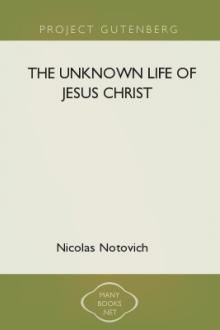The Autobiography of Ben Franklin - Benjamin Franklin (bookreader .txt) 📗

- Author: Benjamin Franklin
- Performer: 0743255062
Book online «The Autobiography of Ben Franklin - Benjamin Franklin (bookreader .txt) 📗». Author Benjamin Franklin
They gave me their thanks in form when I return’d. But the proprietaries were enraged at Governor Denny for having pass’d the act, and turn’d him out with threats of suing him for breach of instructions which he had given bond to observe. He, however, having done it at the instance of the General, and for His Majesty’s service, and having some powerful interest at court, despis’d the threats and they were never put in execution… . [Unfinished].
CHIEF EVENTS IN FRANKLIN’S LIFE
Ending, as it does, with the year 1757, the autobiography leaves important facts un-recorded. It has seemed advisable, therefore, to detail the chief events in Franklin’s life, from the beginning, in the following list:
1706 He is born, in Boston, and baptized in the Old South Church.
1714 At the age of eight, enters the Grammar School.
1716 Becomes his father’s assistant in the tallow-chandlery business.
1718 Apprenticed to his brother James, printer.
1721 Writes ballads and peddles them, in printed form, in the streets; contributes, anonymously, to the “New England Courant,” and temporarily edits that paper; becomes a freethinker, and a vegetarian.
1723 Breaks his indenture and removes to Philadelphia; obtaining employment in Keimer’s printing-office; abandons vegetarianism.
1724 Is persuaded by Governor Keith to establish himself independently, and goes to London to buy type; works at his trade there, and publishes “Dissertation on Liberty and Necessity, Pleasure and Pain.”
1726 Returns to Philadelphia; after serving as clerk in a dry goods store, becomes manager of Keimer’s printing-house.
1727 Founds the Junto, or “Leathern Apron” Club.
1728 With Hugh Meredith, opens a printing-office.
1729 Becomes proprietor and editor of the “Pennsylvania Gazette”; prints, anonymously, “Nature and Necessity of a Paper Currency”; opens a stationer’s shop.
1730 Marries Rebecca Read.
1731 Founds the Philadelphia Library.
1732 Publishes the first number of “Poor Richard’s Almanac” under the pseudonym of “Richard Saunders.” The Almanac, which continued for twenty-five years to contain his witty, worldly-wise sayings, played a very large part in bringing together and molding the American character which was at that time made up of so many diverse and scattered types.
1738 Begins to study French, Italian, Spanish, and Latin.
1736 Chosen clerk of the General Assembly; forms the Union Fire Company of Philadelphia.
1737 Elected to the Assembly; appointed Deputy Postmaster-General; plans a city police.
1742 Invents the open, or “Franklin,” stove.
1743 Proposes a plan for an Academy, which is adopted 1749 and develops into the University of Pennsylvania.
1744 Establishes the American Philosophical Society.
1746 Publishes a pamphlet, “Plain Truth,” on the necessity for disciplined defense, and forms a military company; begins electrical experiments.
1748 Sells out his printing business; is appointed on the Commission of the Peace, chosen to the Common Council, and to the Assembly.
1749 Appointed a Commissioner to trade with the Indians.
1751 Aids in founding a hospital.
1752 Experiments with a kite and discovers that lightning is an electrical discharge.
1753 Awarded the Copley medal for this discovery, and elected a member of the Royal Society; receives the degree of M.A.
from Yale and Harvard. Appointed joint Postmaster-General.
1754 Appointed one of the Commissioners from Pennsylvania to the Colonial Congress at Albany; proposes a plan for the union of the colonies.
1755 Pledges his personal property in order that supplies may be raised for Braddock’s army; obtains a grant from the Assembly in aid of the Crown Point expedition; carries through a bill establishing a voluntary militia; is appointed Colonel, and takes the field.
1757 Introduces a bill in the Assembly for paving the streets of Philadelphia; publishes his famous “Way to Wealth”; goes to England to plead the cause of the Assembly against the Proprietaries; remains as agent for Pennsylvania; enjoys the friendship of the scientific and literary men of the kingdom.
[HERE THE AUTOBIOGRAPHY BREAKS OFF]
1760 Secures from the Privy Council, by a compromise, a decision obliging the Proprietary estates to contribute to the public revenue.
1762 Receives the degree of LL.D. from Oxford and Edinburgh; returns to America.
1763 Makes a five months’ tour of the northern colonies for the Purpose of inspecting the postoffices.
1764 Defeated by the Penn faction for reelection to the Assembly; sent to England as agent for Pennsylvania.
1765 Endeavors to prevent the passage of the Stamp Act.
1766 Examined before the House of Commons relative to the passage of the Stamp Act; appointed agent of Massachusetts, New Jersey, and Georgia; visits Gottingen University.
1767 Travels in France and is presented at court.
1769 Procures a telescope for Harvard College.
1772 Elected Associe Etranger of the French Academy.
1774 Dismissed from the office of Postmaster-General; influences Thomas Paine to emigrate to America.
1775 Returns to America; chosen a delegate to the Second Continental Congress; placed on the committee of secret correspondence; appointed one of the commissioners to secure the cooperation of Canada.
1776 Placed on the committee to draft a Declaration of Independence; chosen president of the Constitutional Committee of Pennsylvania; sent to France as agent of the colonies.
1778 Concludes treaties of defensive alliance, and of amity and commerce; is received at court.
1779 Appointed Minister Plenipotentiary to France.
1780 Appoints Paul Jones commander of the “Alliance.”
1782 Signs the preliminary articles of peace.
1783 Signs the definite treaty of peace.
1785 Returns to America; is chosen President of Pennsylvania; reelected 1786.
1787 Reelected President; sent as delegate to the convention for framing a Federal Constitution.
1788 Retires from public life.
1790 April 17, dies. His grave is in the churchyard at Fifth and Arch streets, Philadelphia. Editor.





Comments (0)